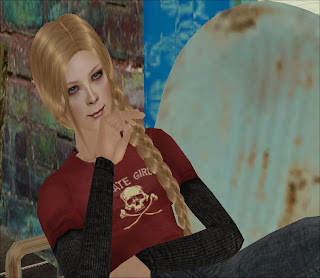
About the whole notebook thing:
I have a lot of them. There's the Moleskine family: the cahier I have almost filled and its siblings; the red pocket sized one that is still blank; the pink duo that are a little heftier than the cahiers,also still blank, and finally the faux (or maybe not) that I use for my art notebook. This is in addition to my dedicated blank books for IWKY and the as yet unnamed Mick/Beth historical, Ember and the Endless Summer legal pad clan. Plus my handmade art notebooks. I will not mention my gigantic stash of blank books, altered notebooks, and legal pads of various sizes. Do binders count?
The correct answer to "how many blank books does Anna need, anyway?" is "all of them." Doesn't matter if they look too plain or I don't like the cover images. I have art supplies, and a good coat of gesso and/or a few passes of sandpaper can cover a multitude of ugly stuff.
All these blank books and I do not keep a diary or journal. I tried when I was about eight and recieved a pink book with a tiny lock on it. I remember starting most entries with "dear dairy" (sic) and most of those consisted of something about that week's episode of Donny and Marie. I remember chucking the thing in the back of one of our end tables that had storage space and that was that.
Other attempts came when some teacher decided we had to keep journals in class. Usually the term "creative writing" would be used at some point, and I like the term "creative writing" as much as I do "diary" and "journal" which is to say not at all, and will instinctively respond to any of the above with a pained eyeball roll. Fine words for those who like them, but they don't fit me. Those same teachers who assigned us journal writing would find that I used the time to make lists, but would add another level of challenge to vocabulary assignments by finding a way to use all the assigned words in a short vignette. Which resulted in some pretty interesting storylines, now lost to some end of year locker cleanout.
what, then, do I do with all these books? They don't have much in common, being of multiple sizes, from an oversized ledger to tiny volumes that could serve as picture books for Barbie's endless parade of baby siblings (hah, siblings, my patoot. I'm looking at you, Ken. Or GI Joe.)Bound books, looseleaf, legal pads, Moleskines (a recently discovered tendre) as well as composition books, spiral bound, the aforementioned handmade, and whatever else finds its way into my grubby paws. I write in them.
General impressions are usually the start; a big mess of everything I can think of regarding whatever first inspired the story at hand. From there, things can get more specific, but the whole process is more instinct or intuition than organization. This is not wasting time making things pretty for no reason. this is the way my brain works. I plan for it to keep working. It's how I get out of slumps.
It will, though, eventually, and often in a new and different and better direction. My favorite inspirational quote is from Bishop T.D. Jakes: "What you feed, lives. What you starve, dies." Basic stuff, but very true. If I want to be a better writer, I have to write. If I can't write the actual text of my stories, I can write about them. Impressions, questions, what-ifs, rants, even things I know will never, ever make it into the book. That can often geta stuck story moving once more.
No comments:
Post a Comment